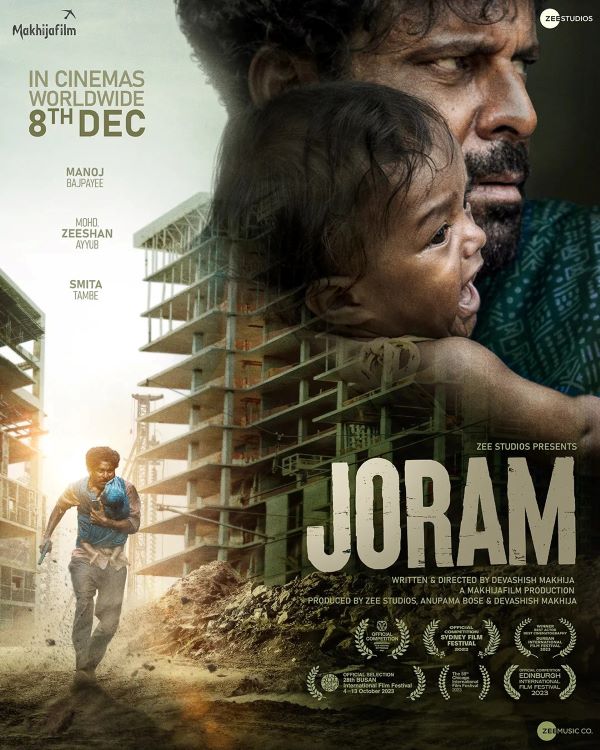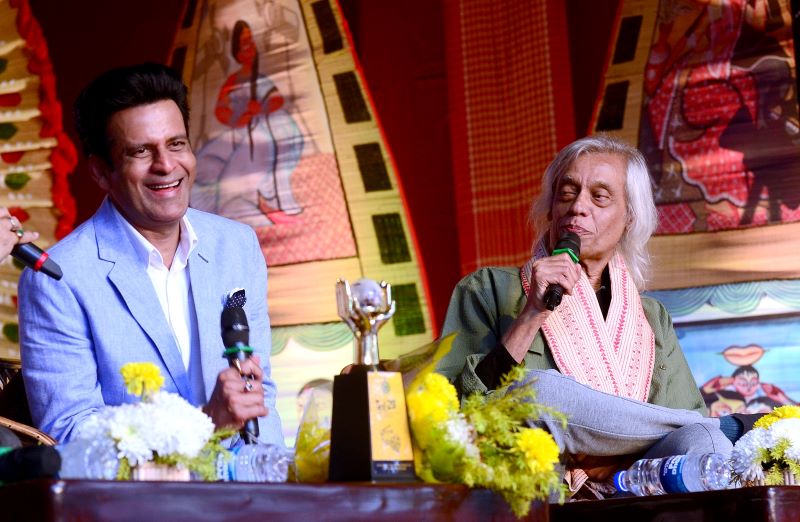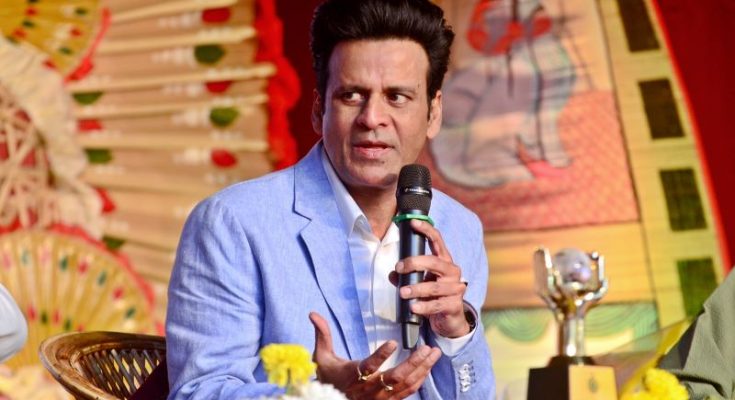#KIFF, #29thKIFF, #ManojBajpayee, #Joram, #Animal, #TheFamilyMan
IBNS: “The audience can’t ask a filmmaker to make a film of their choice,” says Manoj Bajpayee amid the debate over “violence” and “misogyny” shown in Animal but highlights his recently released Joram as an alternative choice for the audience. As the actor was at the 29th Kolkata International Film Festival (KIFF), IBNS correspondent Souvik Ghosh gets an insight on his works…
Q. How challenging was it to shoot inside mine ore for Joram?
A. The temperature inside the open mine was 55 degrees with direct sunlight as compared to 49 degrees outside. But the workers inside the mine actually work. It’s their life which they didn’t choose but were forced to live due to circumstances. It made us feel humble.
It is very challenging to work for long hours and finish a day’s work in this kind of a film. An actor needs to be completely focused and be in his/her zone without thinking about winter or heat or dust. Apart from acting, I had to take care of a three-month-old baby, who was always there on the set. It was the toughest thing for me to take care of the baby while I was performing. My responsibility was not just to perform but look after the baby in every shot.
 Photo courtesy: Facebook/Manoj Bajpayee
Photo courtesy: Facebook/Manoj Bajpayee
Q. How do you keep yourself insulated from the glitz and glamour of the film industry while playing real life heroes on-screen?
A. When I was doing theatre, I saw many actors coming and going (rising and falling). Well, do we talk about Dilip Saab? No. Do we talk about Soumitra Chatterjee? No. Ray saab? Not that much. Actually such greats, who are part of our lives, once they are gone, we talk about them when we sit and talk about cinema. It is then that we talk about someone like Mr. Ray. Otherwise we are just moving on with our lives. That’s the truth.
Once one exits from the scene, everything is gone. So it makes me more humble and forces me to really approach my profession with a lot of humility. I am thankful not only to God but also to the audience and the directors for giving me all the choices. I am aware that I have to make the most of it before I leave and feel satisfied looking at my filmography because everything else is temporary.
Q. In the backdrop of Animal debate, do you think filmmakers should have complete freedom in showing whatever they want?
A. I would say it’s up to the audience on what to choose. The audience can’t ask a filmmaker to make a film of their choice. A filmmaker is going to make a film of his/her own choice. We can’t ask filmmakers not to make it if we want this democracy to really thrive. We can’t ask for protest or ban. The director can express himself in his own way. But at the same time, the audience has the choice to watch films like Joram where women have been celebrated. There has to be a place for everybody.
I always believed if cinema had influence on our society, it would have been a heaven because mostly the films that we have made carried great messages and glorified women and family values. But society hasn’t changed. So cinema or the stories are derived from society and projected on big screens and not vice-versa.
Q. Do you think OTT has made the Indian film industry more inclusive?
A. OTT has completely democratized the whole industry, all across. During the pandemic, most of the north Indians watched films from Tamil Nadu, Kerala and so many stars suddenly sprung up. So that itself is the testimony or the proof of how OTT has helped the entire film industry come into one. RRR, Baahubali, Pushpa are now popular not only in South India but also in North India.
But to add to that, I must say south Indian actors like Allu Arjun, Jr. NTR, Ram Charan are very popular in the villages or the small towns of North India because of satellites and dubbed films. Twenty years back, we had stopped making films for those masses, which were not getting to see their heroes so they switched to those dubbed films. The South Indian stars becoming popular across the country is not a new phenomenon.
 Manoj Bajpayee (L) and Sudhir Mishra (R) at KIFF ‘Masterclass’ | Image by Avishek Mitra/IBNS
Manoj Bajpayee (L) and Sudhir Mishra (R) at KIFF ‘Masterclass’ | Image by Avishek Mitra/IBNS
Q. How do you see the idea of censorship on OTT?
A. Digital media will be dead if censorship comes. People went completely rogue in the beginning (of OTT) with their making because they didn’t know what to do with that kind of freedom. So every second film or series relied on abusive languages, sex and violence. But now, they (filmmakers) are calming down. They are making projects being much more responsible in their storytelling and using abuse, sex and violence as per the requirement of the storytelling. I think people are intelligent enough to be sensible when it comes to filmmaking without censorship.
Q. How do you choose roles now? How often do you turn down scripts?
A. I choose very carefully because I don’t want to do anything, which is anyway similar to the roles that I have done in the past. Moreover, the roles need to excite me. Going to work everyday requires motivation and encouragement and that can only come from the roles that I choose. A role should challenge me and be relatable for me to opt for it.
Q. What’s the status of the third season of your popular web series The Family Man?
A. Family Man Season 3 will go on floors by the end of February, 2024. It will be ready for the audience to watch by mid-2025.
(Images of Manoj Bajpayee by Avishek Mitra/IBNS)





